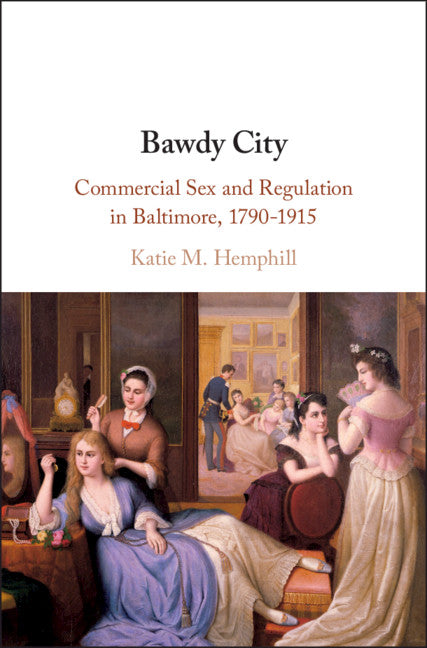Bawdy City
Commercial Sex and Regulation in Baltimore, 1790–1915
Author(s): Katie M. Hemphill
Couldn't load pickup availability
🚚 Please note we can only ship within the UK.
FREE delivery on books (excluding sale).
Delivery for other items is £1.50 - £4.50, calculated at checkout.
T&Cs apply.
Free click & collect on all orders.
A vivid social history of Baltimore's prostitution trade and its evolution throughout the nineteenth century, Bawdy City centers women in a story of the relationship between sexuality, capitalism, and law. Beginning in the colonial period, prostitution was little more than a subsistence trade. However, by the 1840s, urban growth and changing patterns of household labor ushered in a booming brothel industry. The women who oversaw and labored within these brothels were economic agents surviving and thriving in an urban world hostile to their presence. With the rise of urban leisure industries and policing practices that spelled the end of sex establishments, the industry survived for only a few decades. Yet, even within this brief period, brothels and their residents altered the geographies, economy, and policies of Baltimore in profound ways. Hemphill's critical narrative of gender and labor shows how sexual commerce and debates over its regulation shaped an American city.
- Presents a history of capitalism that focuses on women's labor and its relationship to the broader urban economy
- Provides an overview of the sex trade's development
- Fills a significant gap in the historiography, allowing readers to broaden their ideas about who counted as an agent in economic development
Share


